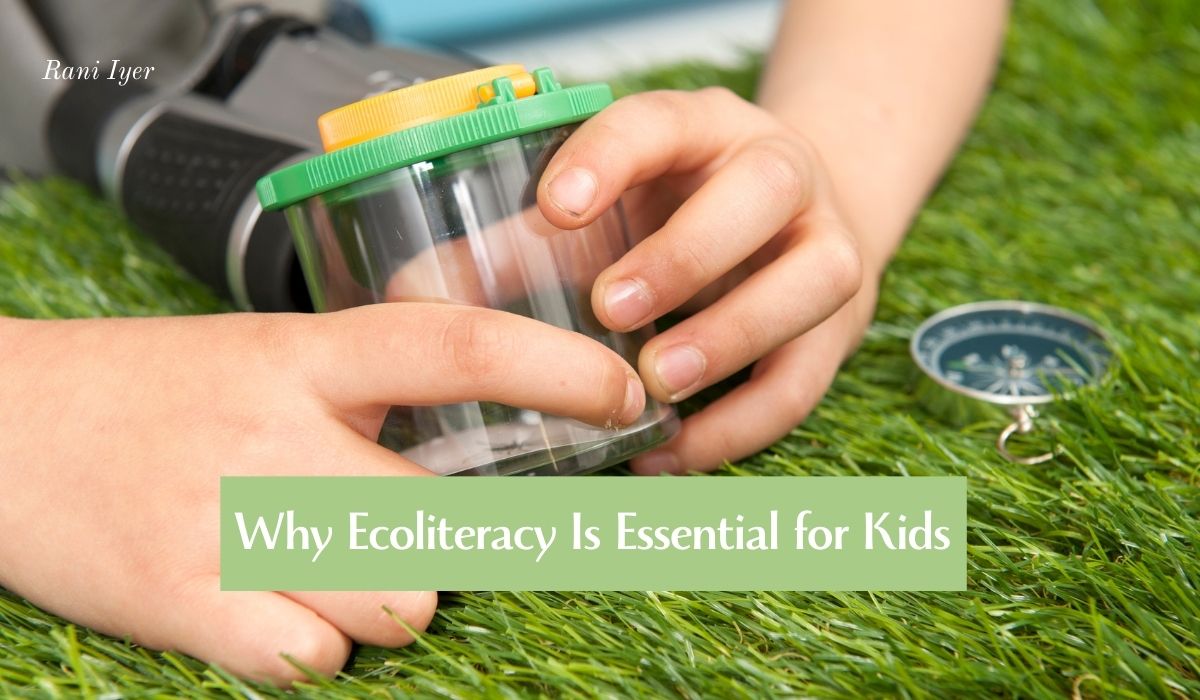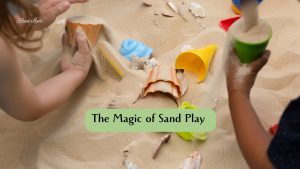We live in an era defined by climate change, biodiversity loss, and environmental uncertainty, ecoliteracy—the ability to understand the natural systems that sustain life—is not just an educational buzzword—it’s essential. For children, ecoliteracy offers more than knowledge—it fosters empathy, responsibility, and a lifelong connection to the Earth. Here’s why making ecoliteracy a priority in early education isn’t just valuable—it’s transformative.
What Is Ecoliteracy?
Ecoliteracy, also referred to as ecological literacy, is defined as the ability to understand natural systems and their interactions—what makes life on Earth possible—and to apply those principles to create sustainable, resilient communities. The term was popularized by thinkers like David W. Orr and Fritjof Capra in the 1990s, embedding the concept within a holistic, systems-thinking educational paradigm (Sustainability Education).
1. Nurturing Systems Thinking & Interconnectedness
Teaching kids to see how ecosystems interrelate builds foundational systems thinking. Ecoliteracy helps young learners grasp that “everything is connected to everything”—a core ecological truth that deepens cognitive awareness and responsibility (Sustainability Education).
2. Blending Emotional, Social, and Ecological Intelligence
Ecoliteracy combines social, emotional, and ecological intelligences. Children learn to empathize not only with people but with all living forms, promoting ethical and sustainable decision-making rooted in awareness and care (Greater Good).
3. Hands-On Learning: Gardens, Play, and Outdoor Classrooms
- Garden-Based Learning: School gardens offer immersive, real-world learning, boosting science achievement, environmental awareness, and even nutrition awareness among children.
- Outdoor Learning: Programs that bring kids into nature—through field trips, gardening, or schoolyard ecosystems—engage curiosity and reinforce ecoliteracy through lived experience (ERIC, Digital Commons, Planet Bee).
4. Playful Pedagogy: Learning Through Wonder & Imagination
Young children absorb ecological concepts best through play. In Brazil, playful activities—like dramatization, games, and group reflections—helped preschoolers grasp food webs, expand vocabulary, and develop awe for interconnected life (Children & Nature Network).
5. Digital Tools, Storytelling & Empathy Building
Digital media and storytelling can be powerful ecoliteracy catalysts. Research shows early childhood programs leveraging empathy, community involvement, visible ecological concepts, and the “5Rs” (refuse, reduce, reuse, recycle, rot) benefit from increased environmental awareness via storytelling, videos, and field trips (ResearchGate, ERIC).
Additionally, ecological empathy—the ability to feel with the planet—is linked to stronger conservation behaviors. Both knowledge and empathy predict pro-environmental attitudes, with cognitive empathy especially leading to sustainable actions.
6. Youth Stewardship: Community, Well-Being, and Leadership
When kids contribute to environmental stewardship—such as community gardening or restoration projects—they build the “Six C’s”: competence, confidence, connection, character, caring, and contribution. Engagement yields ecological literacy, well-being, leadership, and social belonging (PMC).
7. A Holistic Educational Shift for Future Sustainability
Ecoliteracy isn’t an optional add-on—it’s a foundational shift in education. It encourages systems thinking, reimagines curricula around ecological principles, and nurtures long-term sustainability by rooting care for Earth at the core of learning (UNFCCC, ecoliteracy.org).
The Center for Ecoliteracy, for example, integrates ecological systems into schools via gardens, sustainable school-lunch programs, and food systems thinking—demonstrating how ecoliteracy can transform K–12 education.
Why Ecoliteracy Empowers Kids — and the Planet
| Benefit | Impact on Children |
| Critical systems thinking | Understand complex interdependencies in ecosystems |
| Empathy & emotional intelligence | Cultivate care for all life |
| Hands-on learning | Boosts engagement, science skills, healthy habits |
| Play & wonder | Ignite lifelong curiosity and connection to nature |
| Digital storytelling | Scales ecoliteracy through empathy-building media |
| Community stewardship | Builds leadership, belonging, and environmental action |
| Educational transformation | Fosters an eco-centric, future-ready curriculum |
Call to Action: Empower a Generation Through Ecoliteracy
- For Educators: Incorporate gardens, outdoor lessons, eco-models, storytelling, and digital tools into curriculums.
- For Parents: Foster awe and curiosity—take your kids outdoors, explore stories, and practice the 5Rs together.
- For Schools & Policymakers: Invest in ecological infrastructure and moral curricula that position children as Earth’s stewards.
Peer-Reviewed Foundations
- Implementation Study: Outdoor ecoliteracy learning led to significant gains in environmental care attitudes among fourth-graders—from 70% caring to 90% very caring—over two classroom cycles (ERIC).
- Play-Based Brazilian Study: Dramatic results in kids’ attention, engagement, and understanding of the food web through playful, reflective learning (Children & Nature Network).
- Garden-Based Learning Benefits: School garden programs elevate environmental awareness, science achievement, life skills, and nutrition knowledge.
- Digital & Empathy-Centric Study: Early childhood ecoliteracy thrives via empathy development, community involvement, and the 5R framework delivered through stories and media (ResearchGate, ERIC).
- Youth Stewardship Research: Engagement in environmental programs enhances wellbeing and ecoliteracy via contribution and community participation (PMC).
Final Thought
Ecoliteracy is essential for kids—not only for learning science but for nurturing empathy, curiosity, leadership, and sustainable living. When we embed ecoliteracy into early education, we don’t just teach—it transforms. We equip children to solve the ecological challenges of tomorrow with wisdom, compassion, and systems-based insight.
Let’s build the system that champions this urgent, research-backed educational evolution—because the most profound learning begins when kids rediscover their place within the living world.


